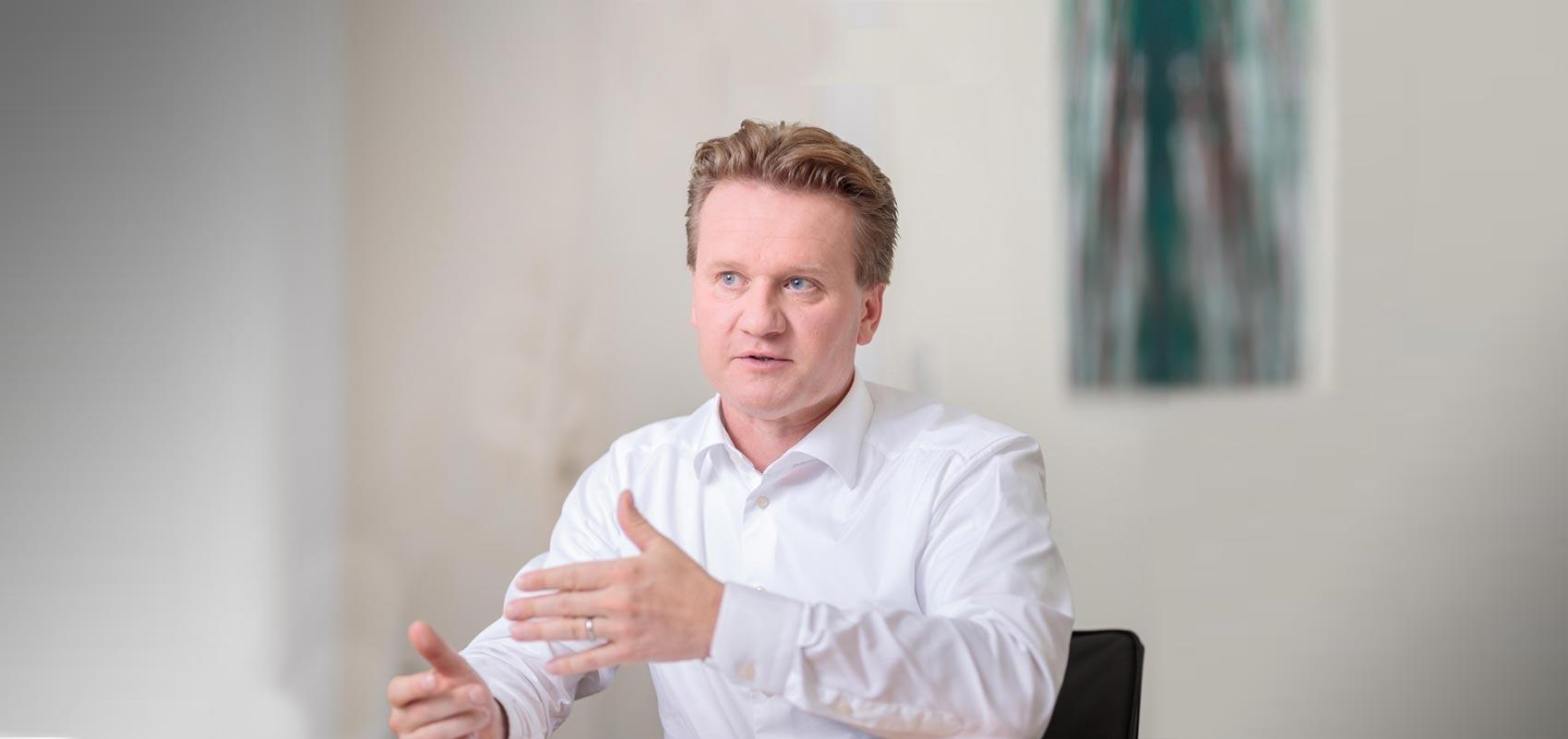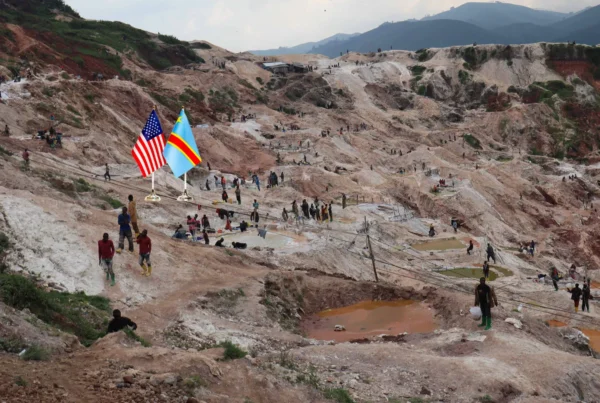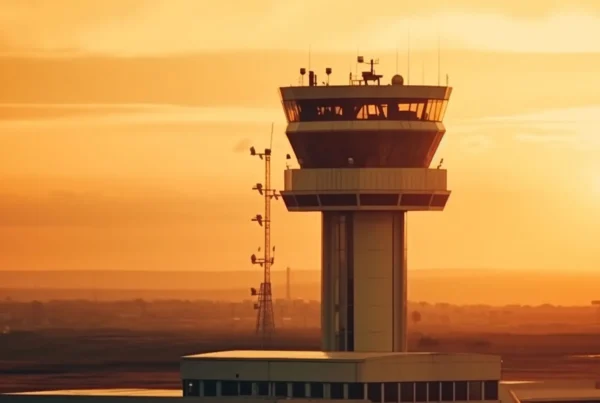Georg Knill, President of the Federation of Austrian Industry gave iGlobenews an exclusive interview. Austrian industry must be made fit for the future though innovation and increasing the attractiveness of Austria as a business location. COVID, rising energy costs and the lack of skilled workers, as well as the EU sanctions on Russia will be tough on Austrian industry and require a decisive response by policy makers.
Diana Mautner Markhof, 22 February 2022
President of the Industriellen Vereinigung (IV) – The Federation of Austrian Industries, Georg Knill, gave iGlobenews an exclusive interview. The IV represents the interests of industry in Austria and plays a central role in governmental policy and Austrian legislation. The IV currently has more than 4 500 members from a wide range industries including industrial production, credit and insurance, infrastructure and other industry-oriented services. The Federation’s members make up 80% of domestic manufacturing companies.
President Knill has a technical background. In September 2021 he was awarded the title of Ehrensenator (Honorary Senator) by the TU Graz (Technical University of Graz) for his outstanding service in promoting science and technology. Before joining the IV, President Knill was Managing Partner of Knill Gruppe, a family-owned and managed energy infrastructure corporation with over 2 200 employees and an annual turnover of more than EUR 336 million. Knill Gruppe is a global corporation with subsidiaries in 17 countries. It has been in the Knill family since 1712.
As President of the IV Georg Knill is an important personality in Austria and at the European level. The IV is one of the most modern and effective employer’s associations in Europe and represents Austrian industry on a European level in BusinessEurope. President Knill is the voice of Austrian industry.
iGlobenews: Which industrial sectors were impacted the most during the COVID pandemic? Have these sectors recovered, if not, when do you think pre-pandemic levels of productivity will be reached?
President Knill: Overall, Austrian industry performed well, even though some sectors were hit harder than others. The industry already significantly exceeded its pre-crisis production levels in March 2021. The chemical and automotive supply sectors operated well above pre-crisis levels, while mechanical engineering caught up strongly, partly due to the investment premium initiated by the federal government. The manufacturing sector and its partners are still proving to be a reliable pillar of the economic upswing. Provided there are no non-forecastable exogenous shocks, the industry-led upswing will continue at a moderate pace.
iGlobenews: How will possible EU sanctions against Russia affect Austrian and EU industry?
President Knill: With the Russian-Ukrainian conflict, Austria and the EU have a trouble spot right on their doorstep. A politically stable situation between the two countries is significant for our economic activities and investments. The Austro-economy is strongly intertwined with both the Russian and Ukrainian economies. But simply because of Russia’s market size, it is stronger between Vienna and Moscow than between Vienna and Kiev. Russia was the second largest investor in Austria in 2020 and ranked 14th in terms of domestic direct investment. It is important for the industry, that trade agreements such as the EU-Ukraine Association Agreement are truly respected, that the markets stay open for trade and investment, and that legal certainty prevails.
iGlobenews: Every month of lockdown has cost Austria 0,3% of BIP. How much has the Austrian government spent on pandemic subsidies? How long can the Austrian taxpayer continue to pay these subsidies? How much has Austrian industry gotten in EU subsidies?
President Knill: Austria has paid out or approved around 42 billion euros in economic aid up to January 2022. These are, of course, huge sums. In view of the economic drama of the pandemic and the acute danger of massive job losses – with all the negative consequences – the measures taken by the federal governments were right and necessary. But it would be too short-sighted to see only the purely financial aspects of the aid. In addition to money, flexibility was a crucial crisis currency for companies. Corona short-time work, for example, was a very effective crisis instrument that gave companies the economic flexibility they needed in this challenging situation. Nevertheless, it is important to bear in mind that Austria was able to implement these aid measures because it had previously pursued a balanced budget policy for the most part, and we must now return to this policy as quickly as possible. If we also manage to leverage corresponding efficiency potential in public administration, experts say that it would even be possible to repay the Corona debt in the foreseeable future without imposing additional burdens on citizens.
iGlobenews: Energy costs impact production costs. Pursuant to a recent survey of the Austrian Chamber of Commerce, 83% of companies see the rise in electricity and energy costs as dramatic. This rise in fix costs will negatively impact the international competitiveness of the Austrian export industry. The Austrian government is actively considering energy subsidies for private households. What can be done to support companies? How could this be financed?
President Knill: Austria’s companies – especially energy-intensive industry – are facing dramatic energy price developments. Prices for electricity and gas are many times higher than before the crisis. We are facing a challenge of historic proportions – with dramatic consequences not only for consumers, but also for the entire business location and countless jobs. While it is legitimate to take measures to relieve households in this situation, it is also necessary for the federal government to consider setting up a transformation fund to support companies in their climate-neutral transformation in the medium term. Furthermore, an important measure to curb the cost explosion for electricity and gas could be compensation for increased electricity prices due to high CO2 certificate costs, as this has long been common practice in other EU countries. Time is pressing, in any case, because many companies are already seeing themselves forced to pass on the increased costs in their sales prices. Otherwise, the losses in production would be too high.
iGlobenews: The pandemic has highlighted the dependence of the West on China not only for vital medicines, pharmaceuticals, computer chips, spare parts etc. Novartis produces penicillin in Tirol. This production location is one of the last to produce penicillin in Europe. In July Novartis and the Austrian government announced the expansion of the production site in Kundl. What lessons should be learned for the future? How can the EU become more independent from China?
President Knill: Successful research-intensive companies like Novartis add massive value to the location and the entire country benefits from them. The current crisis shows us why it is so important that a large number of these flagship companies, for example in the pharmaceutical sector, but also in numerous other sectors, operate in Austria. Research-intensive companies demonstrably generate more value added and create more jobs than non-research companies. For this reason, industry always advocates attractive framework conditions for R&D-strong industrial companies in Austria and Europe. However, this in no way means that the interconnectedness of the international economy should generally be turned back. The European and Austrian economies are closely interwoven with China. China recently ranked third among investors in Austria, behind Germany and Russia. It will continue to be important for the EU to engage in fair trade worldwide without obstacles if possible – this also includes being able to make better use of China and its potential. An investment agreement negotiated by Brussels and Beijing that does not omit human rights, democracy and environmental aspects could ensure fairer competition with China.
iGlobenews: Austria is constantly suffering from a shortage of skilled workers (Fachkräftemangel). According to the December 2021 figures of the AMS (labor market service) there are c. 336 000 people looking for jobs in Austria. What should the Austrian government do to entice people to take jobs, agree to retrain, support apprenticeship training (Lehrlingsausbildung), etc. Considering the level of unemployment, can the unemployed be trained to take these jobs? Should job seekers be willing to be more mobile, as in the US? What solutions does the IV propose?
President Knill: In industry alone, there is currently a shortage of around 12,000 skilled workers. This shortage of personnel is now also having a noticeable impact on sales figures. The situation is exacerbated by the fact that the baby boomers are retiring, while at the same time there are too few young skilled workers to follow. It is therefore necessary to attract more workers from abroad: Competition for the best skilled workers has long since become a global issue, not just an Austrian or European one. This requires the implementation of the reforms of the Red-White-Red Card. From the industry’s point of view, there is a need for further action above all in the areas of (initial) training, apprenticeships, digital skills and the labor market. In addition, the IV has been working for some time to expand STEM activities in schools, e.g., through the STEM seal of approval, which is awarded annually together with the Ministry of Education to particularly committed schools in this area.
iGlobenews: You have been made an ‘Ehrensenator’ of the TU Graz. In your opinion, how can society encourage more women to study and work in technical areas? This should apply to attracting more women to technical apprenticeships, studying at Fachhochschulen (polytechnic schools) and technical universities. More women in high paying technical vocations would also contribute to closing the gender pay gap.
President Knill: In addition to making apprenticeships more attractive, we must succeed in getting more girls and young women interested in technical training. The aim is to break down gender stereotypes in career choices in order to get more girls and young women interested in STEM professions in the future. For this reason, IV is participating in the new “MINTality” foundation to promote skilled labor potential and strengthen women’s careers in technical professions. The foundation’s particular strength lies in the fact that it bundles and contributes corporate perspectives. Coupled with a strong interface with the education system, it sets various work priorities, e.g. successful projects for STEM promotion of girls are to be networked and supported and measures for innovative educator training in STEM knowledge transfer and gender sensitization are to be developed.
iGlobenews: The Austrian eco-social tax (Ökosoziale Steuerreform) reform has reduced the corporate tax from 25% to 23%. This will help Austrian industry. What other measures are in this package which are good for industry? How will the carbon leakage protection prevent migration and relocation of Austrian industries abroad? What is the downside of this tax reform from the point of view of Austrian industry?
President Knill: The long-awaited corporate income tax cut increases our competitiveness and strengthens the location, although a reduction to 21 percent would have been desirable. As far as the CO2 price is concerned, it was important for industry that there should be no additional burdens, especially for energy-intensive industry. That would put jobs at risk and would also be detrimental to the climate targets. Hardly anywhere is production more climate-friendly than in Austria – so relocating production to other countries with lower environmental standards to meet the demands of competition would be absolutely counterproductive. Not to mention the fact that we urgently need the innovative capacity of industry in the fight against climate change – placing an undue burden on it would therefore be equally unhelpful. The carbon leakage regulation for the manufacturing sector will be introduced in order to maintain competitiveness at the Austrian location. This is intended to prevent the relocation of CO2 emissions to third countries. Compensation under the carbon leakage scheme thus supports companies for which a switch to CO2-neutral alternatives is currently not yet possible.
I do not necessarily see a downside for the industry in connection with the tax reform. After all, we all benefit from a successful fight against climate change. Measures such as the regional climate bonus go in the right direction by cushioning financial hardship. The same applies to the suspension of the green electricity flat rate for 2022, which takes account of the already horrendous energy prices that represent an enormous burden for industry. I would like to see this flexibility and focus on current challenges in the future as well.
iGlobenews: Climate Action Minister Leonore Gewessler is proud of introducing the ‘KlimaTicket’ for public and private rail transport, urban transport and transport associations across Austria. The logistics and freight industry with tens of thousands of trucks who run on diesel fuel account for 25% of carbon emission on a European level. The transport of goods should be moved onto rails. What should the Austrian government do to achieve this? Higher diesel tax, higher toll (Maut), tax incentives etc.?
President Knill: The transformation of individual mobility to sustainable technologies must be accelerated with the help of tax incentives – both for consumers and for production. Incentives for the purchase of new low-emission vehicles and for the qualification of existing personnel and for research, development and testing of new technologies would bring about such an acceleration. The same applies to incentives based on the investment premium to expand production capacities for the manufacture of alternative drive systems, building on digital production processes. In addition to incentives such as CO2 pricing, which is now being implemented as part of the eco-social tax reform, the necessary capacities and flexibility are of course also important for a shift to rail – so infrastructure must be created. To achieve that, we need to strengthen grid expansion and make it more flexible, as well as speed up approval procedures. The energy transition will only succeed if the necessary energy infrastructure is expanded quickly. Alternative drives such as hydrogen and e-fuels for trucks will play a major role in the future.
iGlobenews: You have stated that climate action should not jeopardize prosperity. How can society achieve the correct balance between protecting the environment and protecting jobs and companies? Who will pay for climate protection?
President Knill: Innovation instead of bans is the order of the day. Neither the environment nor society is helped if domestic companies that can produce more environmentally friendly products here than elsewhere migrate abroad. Prosperity can only be secured if we succeed in keeping companies in the country and positioning Austria as a competitive location in international comparison (USA, China). Climate ambition must therefore go hand-in-hand with industrial competitiveness and feature the zero- and low-carbon solutions to deliver on its objectives. To be able to deliver, proper framework conditions from the continuous availability of renewable and low-carbon energy at competitive prices and a historic investment program need to be in place. Overall investment conditions need to be improved, bottlenecks removed and investments in industrial sectors accelerated.
iGlobenews: What is the IV position on the vaccine mandate? How will this affect the workplace? Can companies now take action against those adamantly refusing to take the jab? Do you support using tax money for enticing people to get the vaccine?
President Knill: The data show that the highest possible vaccination coverage rate is necessary for the sustainable overcoming of the pandemic. A statutory vaccination requirement is a last resort, but one that must be accepted. What is needed is acceptance and the broadest possible willingness to vaccinate among the population. The industry therefore welcomes measures that help to increase the vaccination rate.






